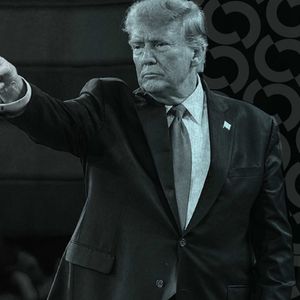Stablecoin Regulation: GENIUS Act’s Dramatic Expansion to Foreign Issuers
4 min read
The landscape of Stablecoin Regulation in the United States is constantly shifting, and a recent development surrounding the GENIUS Act highlights just how far regulators might be willing to reach. While the initial version of this Senate bill, aimed at creating a framework for stablecoins, reportedly failed to advance to formal debate, a revised version has emerged, revealing significant changes that could send ripples through the global crypto market. What’s New in the Revised GENIUS Act? The most striking revision in the updated GENIUS Act is its ambitious expansion of U.S. regulatory oversight. Previously focused primarily on domestic entities, the bill now seeks to exert jurisdiction over Foreign Stablecoins issuers. What does this mean in practice? If a foreign stablecoin issuer, like the widely used Tether, provides services to users in the United States, they would be required to comply with U.S. law under this proposed legislation. This marks a significant potential shift, demanding that global players adhere to American rules if they wish to operate within the U.S. market or serve U.S. persons. Beyond foreign issuers, the revised bill also broadens the definition of “digital asset service providers.” This expanded scope now includes entities previously thought to be outside traditional financial regulation: Developers: Those writing the code for protocols or applications. Validator Nodes: Participants confirming transactions on certain blockchain networks. Self-Custody Wallet Operators: Providers of software or hardware that allows users to hold their own private keys. By classifying these entities as service providers, the bill aims to subject them to Anti-Money Laundering (AML) obligations. This could introduce complex compliance burdens for participants in the decentralized ecosystem. How Could This Impact the DeFi Ecosystem? The provisions targeting developers, validators, and self-custody wallet operators are particularly relevant for the DeFi Regulation discussion. DeFi protocols are designed to operate without central intermediaries. Imposing AML requirements on decentralized components challenges the core ethos of decentralization. Consider the implications: Challenges for DeFi: Identity vs. Anonymity: AML typically requires Know Your Customer (KYC) procedures. How do you apply KYC to a validator node or a piece of open-source code? Responsibility: Who is responsible for implementing AML in a decentralized protocol? The original developers? The current users? The validators? This is a complex legal and technical question. Innovation: Will the burden of compliance stifle innovation in the U.S. DeFi space, potentially driving development offshore? While the bill’s intent might be to mitigate risks associated with illicit finance, the proposed methods raise significant questions about their feasibility and impact on decentralized technologies. What Key Provisions Remain from Earlier Drafts? Despite the significant revisions, the revised GENIUS Act retains foundational elements seen in earlier versions, reinforcing a consistent regulatory philosophy: Licensing Requirements: Issuers would likely need to obtain specific licenses to operate. Full Reserve Backing: Stablecoins would need to be backed by reserves equal to their value, held in safe and liquid assets. Mandatory Disclosures: Issuers would be required to provide clear information about their reserves, operations, and risks. These provisions aim to ensure stablecoin stability and transparency, addressing concerns about potential runs or lack of clarity regarding backing assets. What Are the Legislative Hurdles for the GENIUS Act? According to reports, the GENIUS Act is currently backed solely by Republican senators. In the U.S. legislative system, particularly in the Senate, passing significant bills often requires bipartisan support to overcome procedural hurdles like filibusters. The lack of Democratic co-sponsorship could be a major obstacle to the bill’s progress. However, it remains a prominent proposal and signals the direction some lawmakers wish to take regarding US Crypto Regulation . The ideas within the bill could influence future bipartisan efforts or serve as a starting point for negotiations on stablecoin legislation. Potential Paths Forward: Even without immediate bipartisan support, the concepts introduced in the GENIUS Act could resurface: They might be incorporated into broader financial regulatory bills. They could influence discussions within regulatory bodies like the Treasury or SEC. They could pressure Democratic lawmakers to propose alternative stablecoin frameworks that address similar concerns about foreign issuers and DeFi. The debate around stablecoin regulation is far from over, and the revised GENIUS Act ensures that topics like the oversight of foreign issuers and the regulation of decentralized components remain central to the conversation. What Does This Mean for You? Whether you are a stablecoin user, a DeFi participant, a developer, or simply an observer of the crypto space, these proposed regulations are important: For Users: Increased regulation could potentially lead to more stable and transparent stablecoins, but also limit access to certain foreign-issued stablecoins or DeFi protocols. For Issuers (especially foreign): Compliance with U.S. law could become a necessity to serve the U.S. market, requiring significant operational changes. For DeFi Participants: The regulatory clarity (or lack thereof) around developers, validators, and wallets will shape the future development and use of decentralized applications in the U.S. Staying informed about these legislative developments is crucial as they have the potential to reshape how digital assets are used and regulated in one of the world’s largest economies. Conclusion: A Glimpse into the Future of Stablecoin Oversight The revised GENIUS Act, while facing legislative challenges, offers a compelling look into the potential future of Stablecoin Regulation in the United States. Its dramatic expansion of oversight to include foreign issuers and its attempt to bring decentralized components under AML obligations signal a strong desire among some lawmakers to broaden the reach of US Crypto Regulation . While the path to becoming law is uncertain, the principles laid out in this version of the GENIUS Act are likely to heavily influence future debates and regulatory frameworks concerning Foreign Stablecoins and the broader DeFi Regulation landscape. The industry and users alike must pay close attention as these proposals could fundamentally alter the global digital asset ecosystem. To learn more about the latest stablecoin regulation trends, explore our articles on key developments shaping US crypto regulation and the future of foreign stablecoins.

Source: Bitcoin World



